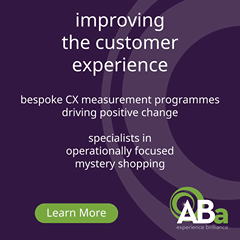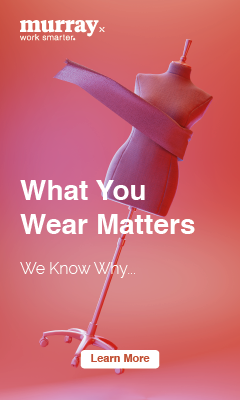Top HR challenges and trends in retail
From recruitment to retention, there has always been a unique mix of Human Resources (HR) challenges in the retail industry. However, since COVID-19 hit these HR issues in retailing have intensified. With a record number of stores closing and employees leaving, it’s clear that retail has been struggling to respond to changing customer and employee needs. If organisations are going to grow and fulfil their potential, HR needs to lead the response. But what does this involve?
We’ve pulled together the top HR challenges retail is facing and some key trends that can help overcome them.
What are the top retail HR challenges?
Every industry has its own set of challenges – some of which are more urgent than others. Here are the 6 key HR challenges that retail businesses need to focus on:
Staffing shortages
Retail employee turnover rates are nearly triple that of the average across all industries in the UK. At the start of 2020, 38% of retail customer service staff reported that they would apply for other jobs. With such high turnover, retail organisations are struggling to fill job vacancies. In a recent small business survey, nearly 31% of small business owners said they have open positions they haven’t been able to fill for three months or longer. And, of course, this is having debilitating effects on retail businesses and creates many problems for HR departments.
Career advancement
Retail jobs tend to be seen as temporary positions for younger people focused on longer-term career goals in other industries. The effects of this misconception are far-reaching. If people don’t see opportunities for career progression, they’re less likely to be engaged. This impacts everything, from team morale to the brand experience. Ultimately, it stops retail meeting (let alone exceeding) customer expectations and businesses from achieving their full potential.
Union vulnerability
The first half of 2022 has seen a spike in worker union petitioning. HR needs to stay up to date with the mood of employees across the workforce to uncover and respond to any discontent before it escalates. They should regularly seek employee input on the work experience. That might involve having conversations with employees or surveying them on specific issues such as fairness of pay, job security and treatment by managers. If complaints emerge, HR need to respond with appropriate corrections.
Sexual harassment
Whether it’s customers, managers or co-workers, inappropriate behaviour is a common problem for retail employees. In fact, the retail trade sector comprised more than 13% of total private-sector sexual harassment claims filed with the US Equal Employment Opportunity Commission (EEOC). That’s second only to the hospitality industry. Retailers often hire young and economically vulnerable women, who tend to be afraid to speak out. It’s HR’s responsibility to create policy, process and culture that enable people to report these incidents without fear of repercussions.
Employee misclassification
It’s not uncommon for US employers to “promote” retail workers to salaried assistant manager positions to avoid paying overtime. However, the US Department of Labor has a robust test to determine if someone really is a manager who should be exempt from overtime. This has resulted in a number of major retailers, including Walmart, paying millions of dollars in employee misclassification cases. HR need to understand these regulations and ensure they are followed.
Discrimination and hiring bias
The influence of unconscious bias over hiring decisions is well documented. Retailers want to project their brand image and managers can subconsciously believe hiring somebody who looks like them will achieve this. This issue affects all demographics – race, gender, age, and ability, among other characteristics. And this means businesses are not getting the benefits that a diverse and inclusive workforce brings – innovation, engagement and better customer experiences.
What are the top retail HR trends?
If retail businesses are going to overcome these challenges, HR needs to take the lead. Here are 6 top retail HR trends that could help:
Focus on employee wellbeing
Mental health issues can severely affect an employee’s ability to carry out their job effectively. With around half of graduate retail workers reporting that their mental health was “very good”, wellbeing should clearly be an area of focus. HR professionals need to create a safe space where employees feel that they can open up about issues. Managers need to be trained to look out for signs of concern and provide support, where it’s needed. This might involve monitoring attendance and sick leave using management software.
Target recruitment to improve retention
As well as creating employee engagement initiatives and worker retention plans, HR needs to take a proactive and well-prepared approach to recruitment. This means not just hiring entry-level retail workers, but getting the right talent in manager, store director and district manager roles. Having strong management is essential for maintaining and growing businesses. Combining traditional recruiting channels, social media and other influential sources enables effective targeting and makes efforts as efficient and effective as possible.
New performance bonuses to counter pay gaps
The majority of UK workers have never had their salaries explained to them. It’s this lack of transparency that’s allowed the gender pay gap to remain unknown and unquestioned by many employees. Although the retail sector has reduced its gender pay gap, there’s lots more HR can do. As well as introducing a transparent salary framework or banding system, regular pay reviews and bonuses connected to achieving objectives ensures pay relates to performance.
Flexible working conditions
With 50% of employees working part time, the retail industry has always had some flexibility in its working conditions. But, as older generations of retail employees approach retirement, HR teams need to focus on attracting and retaining employees. Increased competition for skilled workers makes it even more important to offer the working conditions people want. This could be providing increased flexibility around working hours or other opportunities, such as working abroad.
Create a brand experience
In a changing retail landscape, memorable brand experiences are invaluable – not just for customers but also for employees. By embedding brand values in everything they do, retail organisations show they are authentic. This creates better employee engagement, particularly with millennials and Gen Z who are interested in corporate social and environmental responsibility.
Multilingual communication
Creating that competitive edge and enabling global scaling, speaking all your customers’ languages has plenty of benefits. Building a multilingual team starts during the hiring process by getting an understanding of candidates’ language skills. Although it might not be a prerequisite of the job role, empowering employees to use their skills will create better engagement.
Want to find out more about HR’s role in creating a positive retail work environment? Check out our article on how retail HR can promote diversity & inclusion in the workplace.
Final thoughts
Facing staff shortages, career development misconceptions, unionization and legal cases, retail businesses need to overcome several issues to grow to their full potential. One of HR’s many key roles and responsibilities is to lead the response to these challenges. This includes process related actions, such as targeting recruitment, introducing performance related pay and exploring flexible working options. It also focuses on fostering a culture of authenticity and support that engages employees and allows them to reach their full potential.
Find out more about the latest HR trends in retail at our annual HR Summit. Register today!














